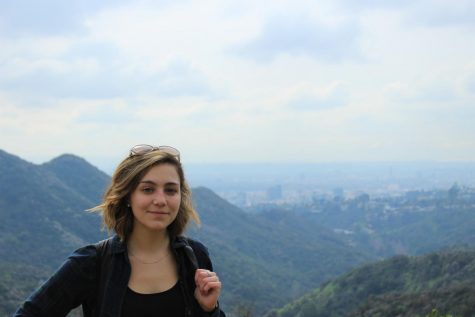The global community is facing the pressures of climate change now more than it ever has before. In response, young Democrat activists have proposed the Green New Deal (GND) with Representative Alexandria Ocasio-Cortez (D-NY) and senator Ed Markey (D-MA) at the forefront.
This ambitious plan confronts climate change through a new framework of legislature. Ocasio-Cortez emphasizes that climate change is not just a national issue, but is also one threatening the global population.
“Even the solutions that we have considered big and bold are nowhere near the scale of the actual problem that climate change presents to us, to our country and to our world,” Ocasio-Cortez said in an interview with NPR.
Although the plan has sparked controversy across the globe, Suffolk University students and faculty, while skeptical of the deal, are pleased to see that it has sparked a serious discussion on the issue of climate change.
“[The Green New Deal] is getting us thinking about [climate change] and talking about it,” said Scott Lussier, Suffolk University practitioner in residence at the Center for Urban Ecology and Sustainability (CUES) in an interview with The Suffolk Journal. “We need to do something about these issues. I love that we are not shying away from talking about them.”
The deal aims to reform the economy while tackling the complex task of eliminating all United States carbon emissions over the next decade. However, the deal offers little specifics on exactly how to accomplish these goals.
“I would like to have seen something more targeted,” said Lussier. “It’s so broad and it reaches into so many different sectors, it’s almost too big for people to get their heads around. Scaling it back may help people to understand it better. I’d almost like to see it divided into sectors.”
The GND suggests massive increases in renewable energy sources, solar and wind, for example, in order to make the U.S. carbon neutral by 2030 with net-zero emissions by 2050, according to page 2 of the resolution.
While this is a well-intentioned goal, many feel it is almost too challenging to comprehend. Seeing as the GND fails to outline the concrete means of achieving net-zero emissions, some are concerned the public may not take the plan seriously.
“It might be a little over ambitious,” said Environmental Club president and senior environmental science major Dakota Ennis in an interview with The Journal. “There are some parts of it that are really good but I think there are some other parts that would be really difficult to get going.”
The GND confronts climate change through nearly every sector of the economy. From infrastructure to agriculture, from public transportation to healthcare and job security, the plan encompasses various progressive proposals that seek to reconstruct both the economy and government as we know it.
“The text itself is just saying what the end goal is, but it doesn’t really have any concrete steps to take,” said junior psychology major Chaim Widger in an interview with The Journal. “This is just a call to make a plan, a plan to make a plan. It’s also really U.S. focused and climate change is a global issue that needs global cooperation to solve it.”
This is also not the first time a plan like the GND has been discussed among lawmakers. Albeit the deal is essentially a plan composed of several goals, it has generated more talk amongst the public than previous climate change related legislature.
“The idea of a Green New Deal is not new,” said Lussier. “It has been around for ten years but has been talked about more than ever in the past few months, which is good.”
The GND has certainly generated discussion on what needs to be done related to climate change. However, some feel that today’s strongly divided political parties are getting in the way of the core problem – the habitability of the planet.
“It’s unfortunate these days with such a polarized political climate. It is difficult to have an actual discussion about this,” said Lussier, emphasizing the need for compromise on this issue. “What actually happens may be a scale down from what the Green New Deal actually proposes.”
Climate change is a global issue that needs to be fundamentally tackled by every nation – not just the U.S. and not just one political party. Widger explained that this issue stems far beyond just the government.
“I’m worried that the Green New Deal is essentially us asking how we can continue to live a destructive lifestyle and consume as we’ve been consuming without any destructive consequences,” said Widger.
Individual change is not comfortable, however, many feel it is going to be required to achieve a cleaner and ultimately habitable planet in the long run.
“This is totally doable, but this is going to take a commitment for people to change their mindset,” said Lussier. “There is a cost to saving the environment.”
Moving forward, Ennis feels that in order to achieve what the GND is asking, people will need to visualize what the changes will be before they make it.
“People that help sustain and build our country should have more say in what goes on,” said Ennis. “If we’re taking all of the old jobs from the coal industry, we need to focus on building new jobs that would probably last longer and benefit the Earth.”
Ambitious as the GND may be, it has undeniably sparked a conversation that many feel cannot be left to burn out.
“If the United States as a country was able to do this, it could set the precedent for a lot of other countries,” said Ennis.
Mainstream media has played a profound role in raising awareness for the climate change issue. Numerous cities have banned single-use plastics and have implemented stricter laws on carbon emissions. Ennis emphasizes that the green movement cannot stop there.
“I think it’s all becoming kind of trendy to be more eco-friendly and to reuse stuff, which is great, but it needs to be more than just a trend,” said Ennis. “If nothing changes over the next decade, some of the consequences would be worse than what we are already seeing.”
The environment is already experiencing drastic changes in weather patterns: coral bleachings, ice caps melting and erratic storms across the globe. Although widely criticized, the GND has integrity in what it is looking to accomplish. Ultimately, individual change must be socially accepted in order to achieve the goals outlined by the GND.



















